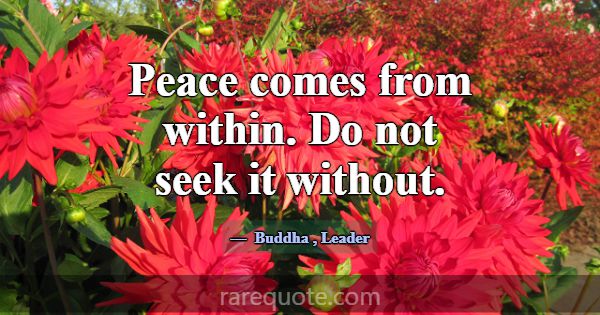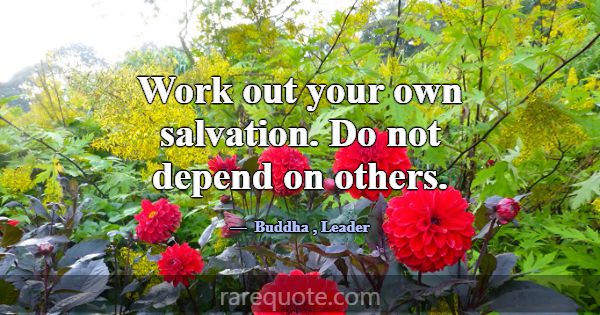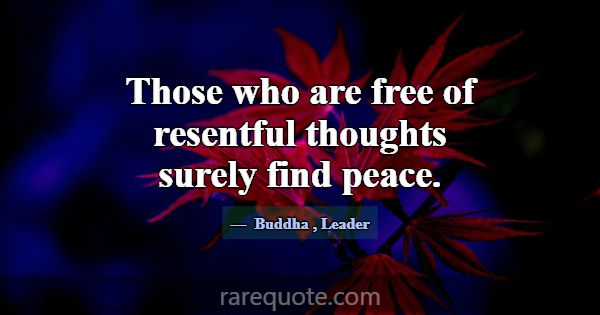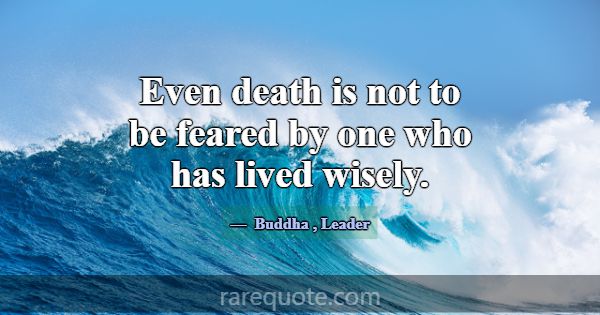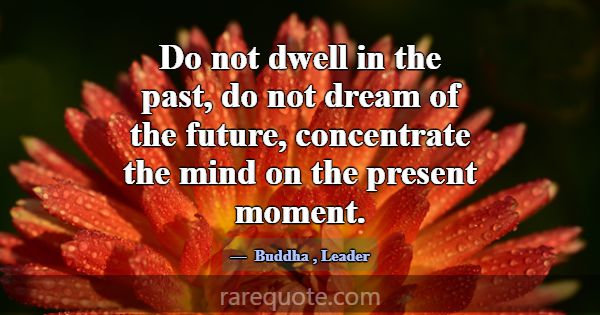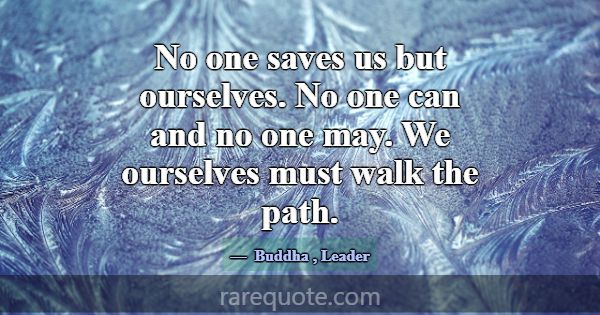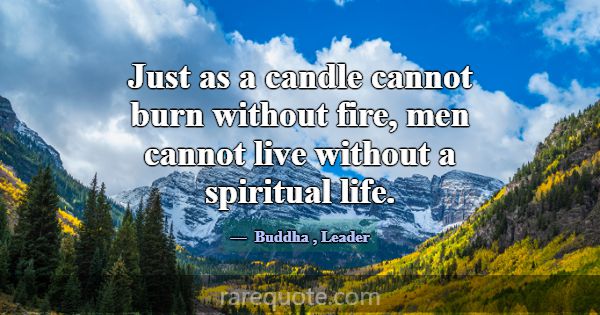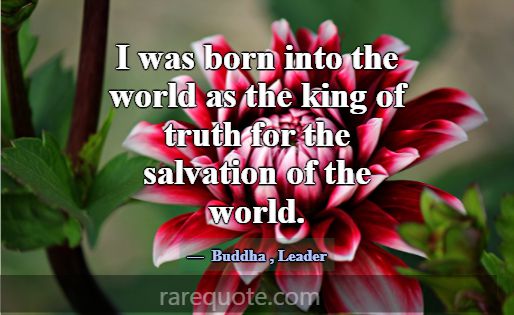Buddha Quotes
Buddha, also known as Siddhartha Gautama, was a spiritual leader and the founder of Buddhism. He is revered as an enlightened teacher who achieved enlightenment and taught the path to liberation from suffering. Buddha's teachings, known as the Dharma, have had a profound influence on the spiritual and philosophical traditions of Asia and beyond. His teachings emphasize mindfulness, compassion, and the pursuit of inner peace.
This quote emphasizes that peace is an inner state that originates from one's own mindset and attitude. It suggests that seeking external sources or circumstances to find peace is futile unless one cultivates inner peace and tranquility. It conveys the idea that peace is a personal journey of self-discovery and self-mastery.
This quote implies that the only true failure in life is not living in alignment with one's values and principles. It suggests that being authentic and true to oneself, even in the face of challenges, is a measure of success. It reflects on the importance of staying true to one's convictions and beliefs.
The quote suggests that individuals who can let go of feelings of resentment and harbor forgiveness are more likely to experience peace. It implies that releasing negative emotions and cultivating a mindset of forgiveness contribute to inner peace and well-being. It conveys the idea that peace is attainable through emotional liberation.
The quote implies that the quality of the travel experience and the enjoyment derived from it are more significant than the mere act of reaching a particular destination. It emphasizes the value of the journey itself and encourages one to appreciate the entire travel experience.
The quote emphasizes the significance of meaningful words that contribute to peace. It suggests that a single word promoting peace carries more value and impact than a multitude of empty or insincere words. It conveys the transformative power of genuine expressions and intentions that foster peace.
Popular Topic
- Age
- Alone
- Amazing
- Anger
- Anniversary
- Architecture
- Art
- Attitude
- Beauty
- Best
- Birthday
- Brainy
- Business
- Car
- Chance
- Change
- Christmas
- Communication
- Computers
- Cool
- Courage
- Dad
- Dating
- Death
- Design
- Diet
- Dreams
- Easter
- Education
- Environmental
- Equality
- Experience
- Failure
- Faith
- Family
- Famous
- Father's Day
- Fear
- Finance
- Fitness
- Food
- Forgiveness
- Freedom
- Friendship
- Funny
- Future
- Gardening
- God
- Good
- Government
- Graduation
- Great
- Happiness
- Health
- History
- Home
- Hope
- Humor
- Imagination
- Independence
- Inspirational
- Intelligence
- Jealousy
- Knowledge
- Leadership
- Learning
- Legal
- Life
- Love
- Marriage
- Medical
- Memorial Day
- Men
- Mom
- Money
- Morning
- Mother's Day
- Motivational
- Movies
- Moving On
- Music
- Nature
- New Year's
- Parenting
- Patience
- Patriotism
- Peace
- Pet
- Poetry
- Politics
- Positive
- Power
- Relationship
- Religion
- Respect
- Romantic
- Sad
- Saint Patrick's Day
- Science
- Smile
- Society
- Space
- Sports
- Strength
- Success
- Sympathy
- Teacher
- Technology
- Teen
- Thankful
- Thanksgiving
- Time
- Travel
- Trust
- Truth
- Valentine's Day
- Veterans Day
- War
- Wedding
- Wisdom
- Women
- Work


